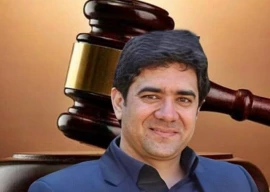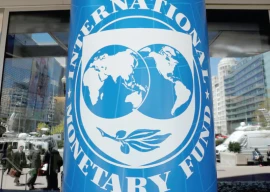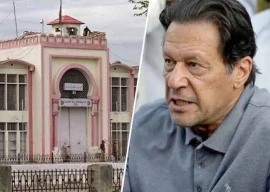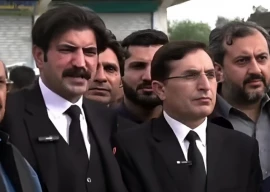
US Secretary of State Hillary Clinton’s visit to Pakistan was part of a ‘course correction’ exercise that Pakistan and the United States are engaged in with respect to their relationship after a period of immense strain between the two allies over the past several months, said Foreign Office spokesperson Tehmina Janjua during a press briefing on Saturday.
Janjua admitted, however, that the two sides still had significant differences, especially over the controversial issue of US drone strikes in Pakistan’s tribal areas. The issue was discussed ‘extensively’ during the recent vist by Clinton and the US Chairman of the Joint Chiefs Admiral Mike Mullen, said the spokesperson.
Both sides have been trying to mend the alliance that is seen as critical to the national security interests of both Islamabad and Washington. Janjua emphasised that, as the countries tried to work through their differences, “this is not the time to rush to make any value judgements on the status of relations.”
The chief American diplomat, along with the top US military commander, visited Islamabad on May 27 to hold discussions with the top military and civilian leadership in Pakistan. Their visit follows visits by US Senator John Kerry and the US special representative to Pakistan and Afghanistan Marc Grossman.
The combination of these three visits by senior US officials have been seen as helpful in repairing ties between the two sides that were strained after the US launched a unilateral raid on Abbottabad that killed al Qaeda chief Osama bin Laden.
The spokesperson acknowledged that Bin Laden must have had support within Pakistan which allowed him to live in a Pakistani city for over five years.
“Obviously, there must have been a local support group, presumably consisting of al Qaeda and its affiliates for Bin Laden. This is common sense. The ongoing investigations hopefully will bare the truth,” she said
Meanwhile, trilateral talks between Pakistan, Afghanistan and the United States – the so-called “core group” – have been taking place in Kabul and Islamabad to chart out a future for Afghanistan after the withdrawal of US military personnel.
The Foreign Office spokesperson, however, refused to divulge any details about the contents of those meetings. She did say that Pakistan and the United States have agreed to resume their strategic dialogue.
Composite dialogue with India
The Foreign Office spokesperson announced that Pakistan and India would hold talks on their territorial dispute involving the Siachen Glacier – now the highest battleground on the planet – on May 30 and 31 in New Delhi. The talks are part of the ‘composite dialogue’ process with India meant to resolve several smaller disputes between the two sides at lower level meetings without attracting the kind of attention and expectations that a summit between the leaders of the two countries would.
Published in The Express Tribune, May 29th, 2011.



1726043753-0/Untitled-design-(9)1726043753-0-165x106.webp)


1726041292-0/Untitled-design-(29)1726041292-0-270x192.webp)

1726042767-0/Untitled-design-(32)1726042767-0-270x192.webp)
1726043276-0/Untitled-design-(13)1726043276-0-270x192.webp)












COMMENTS (2)
Comments are moderated and generally will be posted if they are on-topic and not abusive.
For more information, please see our Comments FAQ